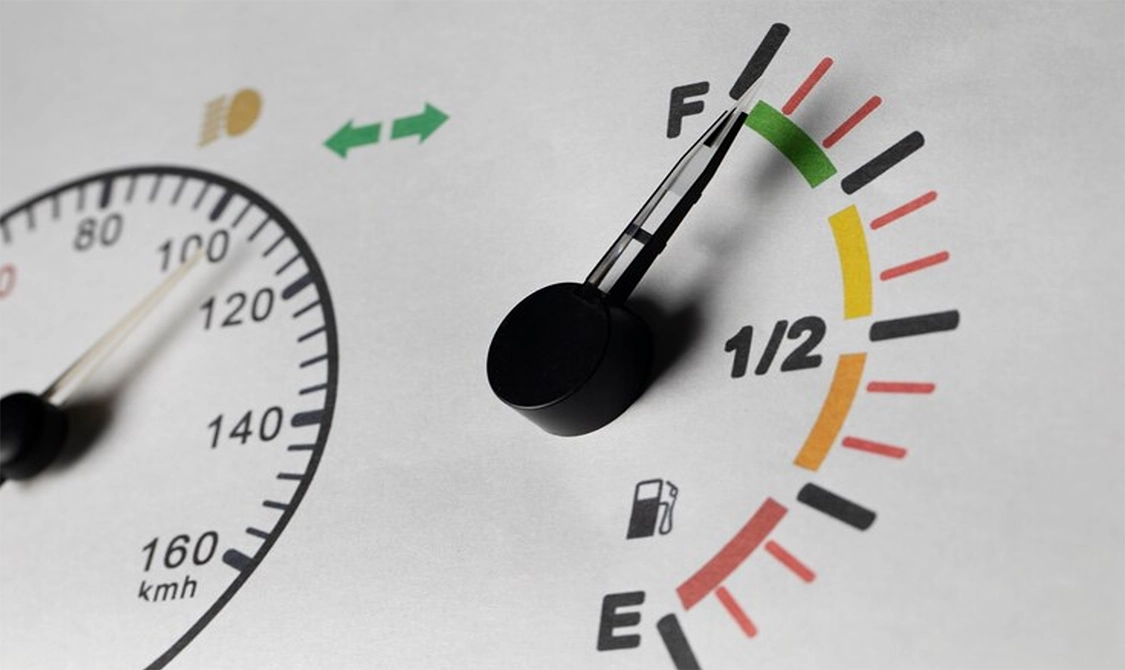 ST-STAFF
.
September 17, 2024
.
Industry News
ST-STAFF
.
September 17, 2024
.
Industry News

Realization of the factors that influence fuel economy is important for motorists and car drivers aiming at increasing car efficiency and reducing fuel costs. On the other hand, the topic is amazingly complicated by the number of misconceptions and falsehoods, which can ultimately confuse people and make them take inefficient approaches. In this post, we will explore some of the main fuel economy myths and provide drivers with the knowledge to make better decisions about their cars and driving patterns.
The idea that fuel economy improves with increasing octane number is perhaps one of the most widespread ones. This is a result of consumers believing that using premium gasoline, which has a higher octane level, will result in improved engine performance. It should be mentioned that not all powerful engines are made to run on premium gasoline. On the other hand, for the majority of cars, the regular one is just fine. Those vehicles which are fueled with regular gasoline will not take advantage of the premium fuel. If you don’t want to use premium, first read your vehicle’s owner manual. If your car does not require premium gasoline, you are most probably just wasting your money in vain. This is particularly relevant when considering vehicle expenses; for those interested in exploring more about cost-effective vehicle options, the https://epicvin.com/cars/chevrolet-for-sale offers a variety of cars that can suit different budgets and needs.
On the other hand, octane values of gasoline simply denote its capability to avoid engine knocking instead of fuel energy content or quality. These premium-grade engines in performance cars or luxury vehicles sometimes require premium gas because of their high compression ratios, which can create knocking if a lower octane gasoline is used. However, in the case of the ordinary engines higher octane levels do not contribute to the increased efficiency of combustion or power. Employing superior petrol in the engine that is normally specified for standard unleaded may not significantly improve either performance or fuel economy. Buying premium gas when the car doesn’t need it is similar to paying for the premium product and not getting any fuel efficiency or engine health benefit. In order to achieve the highest level of efficiency and performance from your automobile, always use the gasoline grade that the manufacturer recommends.
It is no longer true to say that larger automobiles use more gasoline by nature than smaller ones. Modern technical advancements like sophisticated transmission systems and turbocharging have significantly increased the fuel economy of bigger cars like trucks and SUVs. Moreover, the hybrid technology is applicable to large cars as well, meaning a substantial amount of gasoline is not needed. Consequently, choose a vehicle based on the fuel economy ratings rather than the size alone. Today’s bigger vehicles can be as efficient or even more so, than small cars.
To highlight this, fuel usage should be taken into consideration by focusing on the weight load. Engine capacity however, is not always related to fuel consumption and the newer materials and designs are making the manufacture of lighter cars possible. Manufacturers are applying more lightweight materials like aluminum and carbon fiber to make their larger cars be lighter without compromising the dimensions and security. This is responsible for fuel consumptions going down as a result of the less energy needed to drive the vehicle. Smooth panel designs and aerodynamic trails have also been applied to larger vehicles to lower wind resistance, saving fuel consumption. These developments highlight the fact that, if the right technology and design concepts are utilized, larger vehicles can have fuel economy units that are as good or even better than those of small-sized vehicles.
It is a common misconception among drivers that they should keep their engines on in shortstops. g. will drain more power than turning it off and on again. This is a myth. Modern engines are manufactured for minimal fuel consumption when they are starting up and the fuel used to start the engine is less than the fuel used during idling for over 10 seconds. Leaving your engine off for more than a few minutes when you’re going to be stationary can significantly reduce fuel consumption in the long run.
Besides saving your gasoline, it is beneficial for the environment to turn off your engine rather than idling. Idle vehicles emit pollutants that in turn, result in poor air quality and high greenhouse gas emissions. Through the restriction of engine idling, drivers may contribute to the mitigation of these dangerous pollutant emissions that consequently help to create cleaner, healthier air in local communities. On the other hand, many current cars already use start-stop systems which automatically turn off the engine when the vehicle is motionless and restart it when the driver pushes the pedal. Through this technology, fuel economy and environmental pollution decrease with no demand for any action from the driver. Drivers can contribute to the sustainability and eco-friendliness of driving by embracing new technologies and changing old habits.
It was once the case that manual transmissions were generally more fuel efficient than their automatic counterparts, but advances in automatic technology have caused a shift in the rules. Modern automatic transmissions with 6, 8, even more gears can accomplish this feat better than any traditional manual transmission. Thus, manual or automatic transmissions should be chosen according to the individual needs and not just the fuel economy expectation.
The development of Continuously Variable Transmissions (CVT) illustrates how contemporary automatic systems surpass the fuel consumption once dominated by manual transmissions. Unlike CVTs, traditional automatics shift into predefined gear ratios. This function allows the engine to run only at the required power, thus reducing fuel consumption and contributing to lower CO2 emissions, mainly in city driving where there is much stop-and-go traffic. On the other hand, hybrid and electric vehicles, which have been increasingly using CVTs, to improve fuel efficiency and battery range. The gap between the efficiency of manual and automatic transmissions has not only been bridged but even crossed, sometimes being reversed, showing the power of innovation in affecting not only vehicle performance but also fuel consumption.
The argument on air-conditioning or window-opening for fuel efficiency is still underway. Frankly, both of them can affect your vehicle’s fuel economy but under different circumstances. At low speeds opening the windows is more efficient as air conditioning usually needs more of the engine power. Yet, at high speeds, an open window creates drag, which in return consumes more fuel than the air conditioning. One of the best ways is to power the vehicle’s air conditioning sparingly and to use the natural air circulation when feasible.
Furthermore, the effect of air conditioning on fuel consumption is dependent on the kind of vehicle as well as the A/C system’s efficiency. The newer vehicles that have more fuel efficient air conditioning systems affect fuel usage less than the previous models. More importantly, proper maintenance of your vehicle’s air conditioning system helps minimize the impact on fuel economy. This involves checking the refrigerant levels frequently and topping up when necessary as well as ensuring the compressor and other components are working properly. The driver is able to enjoy the ambience of a cool car without drastically affecting the fuel efficiency, and this is especially important during the hot summer months when the cold air is very much essential.
The market is full of fuel additives that are promising to improve the fuel economy and the performance of engines. While the additives may be beneficial in some cases, there is not one exceptional thing that improves fuel economy substantially across all types of cars. The majority of these modern fuels have the additives necessary for engine health and performance already. Prior to employing any fuel additive, try to learn about the product and the vehicle manufacturer’s recommendations to prevent engines from being damaged.
It should be acknowledged that the Federal Trade Commission (FTC) and other automotive professionals have been into the research and testing of the efficacy of fuel additives. Often these studies revealed that the advantages of aftermarket gasoline additives are insignificant at best and are mostly ineffective in new automobiles that are already tuned for performance and efficiency. The FTC cautions drivers to be careful of any fuel additive that promises a drastic increase in fuel efficiency or significant improvement in the car’s performance. Owners of the vehicles should rather make it a habit of routine maintenance and good driving behaviors rather than relying on additives to improve fuel economy. The most reliable and cost-effective way to ensure that the engine has peak performance and fuel economy is by following the manufacturer’s guidelines regarding the type and grade of fuel.
Conclusively, an awareness of what affects fuel economy may lead to more reasonable transportation choices and better vehicle maintenance, which in turn save money and improve the performance. Through undermining the most widespread misunderstandings and following the correct procedures, drivers will be able to keep their cars clean from pollution and consume less fuel. However, you should always follow your car’s owner’s manual and seek professional assistance on issues specific to your car and driving styles.
Share Link